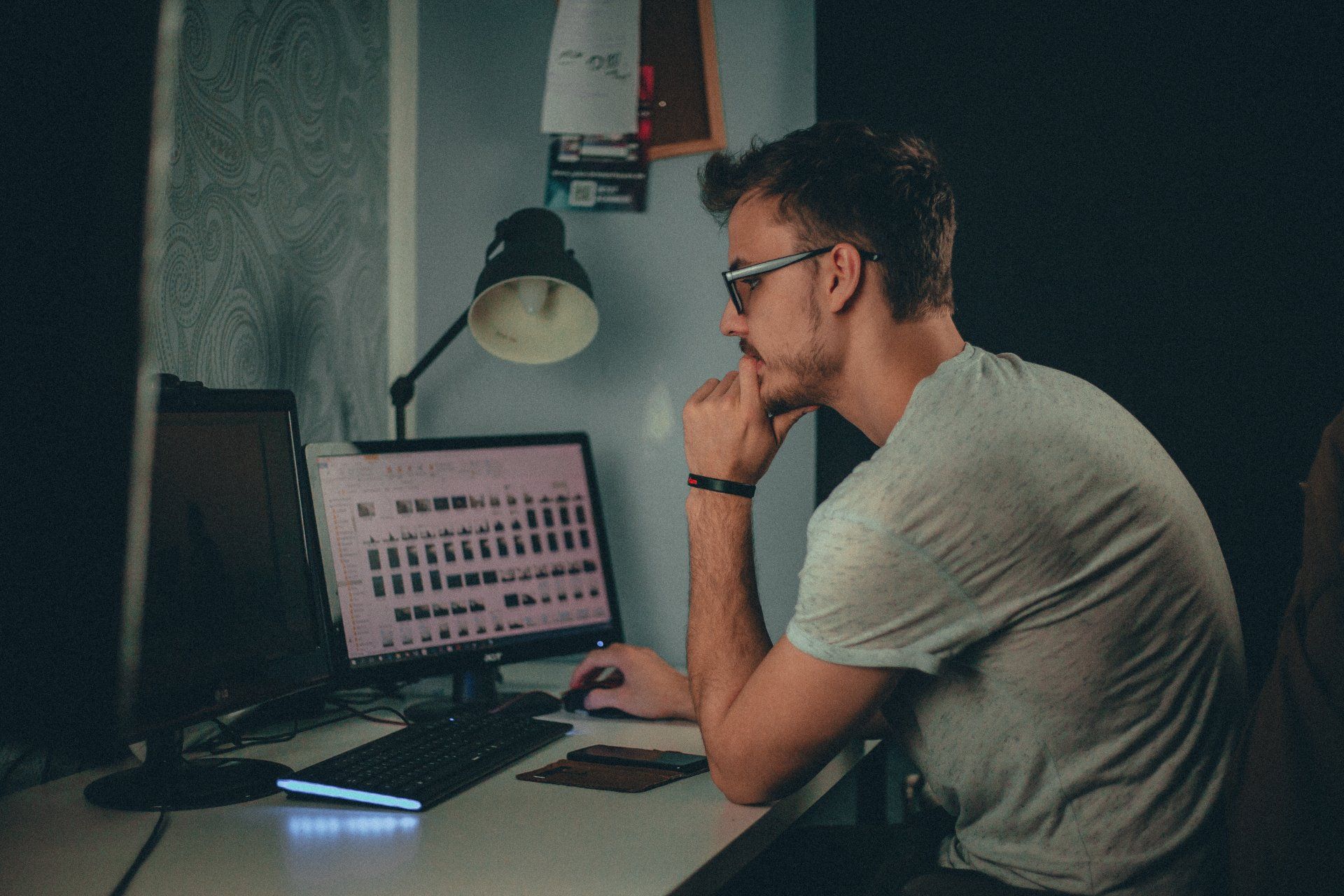Copyright Law Attorneys
Protecting your copyrights is essential after all the creative effort put into drafting, developing, and perfecting ideas. The last thing you want is to see someone else using your work without permission for their own profits. Thankfully, we can help prevent that, protecting your copyright and allowing you to maintain control.
Intellectual property assets are essential for a company’s success, with copyright registration, copyright protection, and preventing copyright infringement playing crucial roles. Securing your company’s innovations, work products, literature, software, and designs through proper copyright registration and protection is vital for maintaining profitability business and a healthy competitive edge. Failure to protect your IP copyrights can lead to significant damage to your business’s reputation, lost profits and market shrinkage. Ensure your intellectual property is safeguarded by focusing on robust copyright protection, effective copyright registration, and promptly addressing copyright infringement through cease & desist letter and, if necessary, copyright litigation.
Safeguarding Your Copyrights
At Wilson Whitaker Rynell, our expert attorneys are dedicated to safeguarding your U.S. and international copyrights. With extensive experience in copyright law, we provide comprehensive protection for your intellectual property, ensuring your creative works are secure. Whether you're an author, artist, software developer, or business owner, our Dallas-based firm offers personalized legal services to help you navigate the complexities of copyright registration, infringement disputes, and licensing agreements. Trust Wilson Whitaker Rynell to protect your valuable intellectual property and maintain your rights in the competitive global market. Contact us today to secure your copyrights effectively.
What is a Copyright?
A copyright is an ownership right that automatically vests when you create an original work of authorship, such as a literary work, song, movie, or software. Your ownership rights include the right to reproduce the work, prepare derivative works, distribute copies, and perform and display the work publicly. Our software protection and copyright law attorneys can assist you with any facet of your copyright needs. Examples of copyrightable works include the following:
- Literary works
- Musical works, including any accompanying words
- Dramatic works, including any accompanying music
- Pantomimes and choreographic works
- Pictorial, graphic, and sculptural works
- Motion pictures and other audiovisual works
- Sound recordings, which are works that result from the fixation of a series of musical, spoken, or other sounds
- Architectural works
Wilson Whitaker Rynell: Providing World-Class Copyright Legal Counsel
At Wilson Whitaker Rynell, we are your ideal partner for securing and safeguarding your valuable copyrights. Whether you're introducing groundbreaking innovations, capitalizing on IP assets, or expanding your copyright portfolio, our expert team provides the informed and strategic representation you need. We are dedicated to protecting your Copyright IP rights and driving your business success. With Wilson Whitaker Rynell, you gain a trusted copyright attorney and ally committed to helping you navigate the complexities of intellectual property law and achieve your business goals in a competitive national and global landscape.
LEGAL HELP FOR BUSINESSES AND INDIVIDUALS SEEKING COPYRIGHT PROTECTION
Intellectual Property Is Your Business's Most Important Asset
At Wilson Whitaker Rynell, our expert copyright attorneys can help your company navigate the intellectual property field and address the constant challenges to your copyrights posed by competitors and infringers. Our copyright lawyers specialize in keeping businesses informed about the latest developments in copyright law and ensuring compliance with IP regulations. If your company needs a copyright registration, copyright license, or is looking to file a copyright infringement lawsuit, our experienced Dallas-Fort Worth area copyright attorneys are ready to assist you. We work diligently to protect your copyrights and negotiate favorable resolutions with copyright holders, safeguarding your interests and minimizing legal risks.
Below is additional information and links related to copyright and intellectual property that our firm can assist with:
Frequently Asked Questions
Enhancing Your Copyright Protection with Proper Registration
A copyright owner can significantly enhance the protection afforded by copyright by filing that copyright with the U.S. Copyright Office. Once the U.S. Copyright Office has notified you that your work is registered, you should begin properly marking your creative works to put third parties on notice of your copyright registration. A copyright notice should contain the following:
- The word "Copyright"
- A "C" in a circle (©)
- Date of publication
- The author/owner name of all copyrights in the work
For example, a copyright notice for a novel could be: "The History of Mark Twain by Joseph Bates, Copyright © 2019 by Joseph Bates." Its important to protect your intellectual property by ensuring proper copyright registration and marking. Our expert copyright attorneys can guide you through the registration process and help you secure your creative works effectively.
Understanding Non-Copyrightable Works
Not all types of works are copyrightable. For instance, the U.S. Copyright Office will not register works produced by a machine or mechanical process that operates randomly or automatically without any creative input or intervention from a human author. This includes x-rays, ultrasounds, magnetic resonance imaging, or other diagnostic equipment. Other examples of non-copyrightable works are:
- Ideas, procedures, methods, systems, processes, concepts, principles, or discoveries
- Works not fixed in a tangible form (such as an unwritten or unrecorded choreographic work or improvisational speech)
- Titles, names, short phrases, and slogans
- Familiar symbols or designs
- Mere variations of typographic ornamentation, lettering, or coloring
- Mere listings of ingredients or contents
Protect your creative works by understanding what qualifies for copyright protection and ensuring proper registration with expert guidance.
When Do Copyrights Enter The Public Domain?
All works published in the United States before 1924 are in the public domain, but works published between 1923 and 1978 enjoy protection for 95 years from the date of first publication. For copyrights created after January 1, 1978, the protection lasts for the lifetime of the author plus an additional 70 years. Our experienced attorneys will guide you through the complexities of copyright law, ensuring your creative works are safeguarded and your rights are enforced. Contact us today to secure your intellectual property. Ensure your intellectual property is fully protected with our expert copyright law services.
How Do You Register A Copyright?
An application for copyright registration is a straightforward process and requires three things: (i) a completed application form, (ii) a nonrefundable filing fee, and (iii) a nonreturnable deposit of the work being 'deposited' with the U.S. Copyright Office — that is, a copy or copies of the work being registered and 'deposited' with the Copyright Office. Unless you are allowed to file multiple works in one application, you must submit a separate application, filing fee, and deposit for each work you want to register. For information on how to register a graphic design copyright, see our Requirements to Copyright a Graphic Design web page.
Understanding Software Copyright Registration
Software is a specific type of copyright registration that often requires each new version of a computer program to be deposited with the U.S. Copyright Office. This includes any changes, revisions, additions, or other modifications made by the author. Except in limited circumstances described below, the registration does not cover earlier versions of the same program or preexisting material contained within the source code. In particular, a registration for a specific version of a program does not cover:
- Previously published source code
- Previously registered source code
- Source code owned by third parties
- Source code in the public domain
Our copyright attorneys can assist you in U.S. Copyright filings and provide guidance on properly securing your software and other copyrights, including literary works, songs, and movies. Protect your intellectual property with expert legal assistance to ensure comprehensive copyright coverage.
ACT NOW TO PROTECT YOUR VALUABLE COPYRIGHT ASSETS
Whether you are an individual or a business with valuable intellectual property, safeguarding your assets is crucial for your future success. At Wilson Legal Group P.C., we are committed to developing long-term relationships and supporting you as your business grows and evolves. Our dedicated intellectual property attorneys specialize in copyright registration, copyright protection, and addressing copyright infringement to ensure your assets are secure. Call Wilson Legal Group P.C. today to speak with one of our experienced intellectual property attorneys and protect your copyrights.
TEXAS INTELLECTUAL PROPERTY ATTORNEYS
A Dedicated Intellectual Property & Copyright Law Firm
Wilson Whitaker Rynell is a Dallas, Texas-based intellectual property law firm serving the high-tech community’s need for the development, protection, and preservation of intellectual property and all rights associated with these valuable assets, both nationally and internationally.
The attorneys at Wilson Whitaker Rynell specialize exclusively in intellectual property issues, including patents, copyrights, trademarks, trade secrets, and licensing. We understand the critical importance of developing and securing a robust intellectual property portfolio, which is why we have made this area of law our sole focus. Unlike many attorneys who include intellectual property law as part of a general corporate practice, we offer the specialized focus required to provide the comprehensive knowledge and expertise that only a firm dedicated exclusively to this demanding legal practice area can deliver.
To schedule a free intellectual property consultation, please Contact Us online or call 972-248-8080.
Copyright Law Blogs











